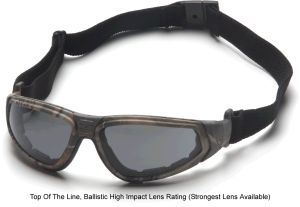I have a 3-year-old son, who has a developmental delay. He isn't yet talking, and he is just beginning to walk. We have taken him to 2 top eye doctors, who have basically said the same thing: That he definitely needs glasses, and life for him without them is very blurry.
This is the perscription (same for both eyes) Sph. +6.5. Cyl -3.5
He has been wearing glasses since about 1 and a half years old.
My problem is, he takes off his glasses all the time. He isn't interested in wearing them at all. If he's distracted he can leave them on, but if bored he takes them off. I haven't seen any difference in his vision if he wears them or not. I mean, he sees a toy from a distance away, even without his glasses. And even from near, when playing with small objects I see no difference if he wears them or not. I feel that it's a loosing battle to keep telling him off to put them on.
However the doctors say he needs them... It's hard for me to go by my judgement that he may not need them, against the doctors.
Does anyone have any advice? How could we get him to keep on his glasses? We have tried with a strap behind them, but this didn't help. He still is at the developmental stage of putting things in his mouth, so he likes to chew the arms of the glasses.
